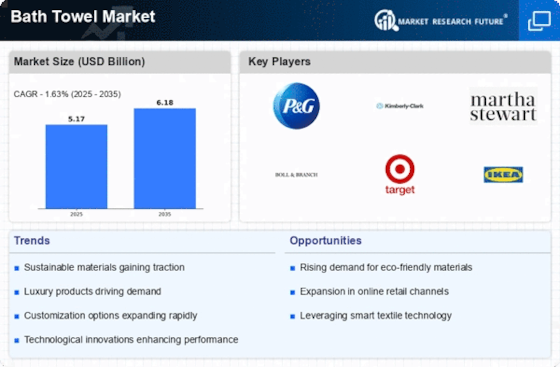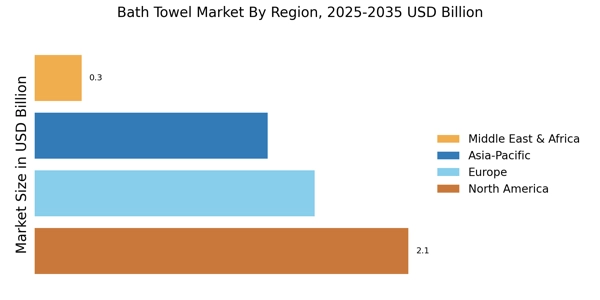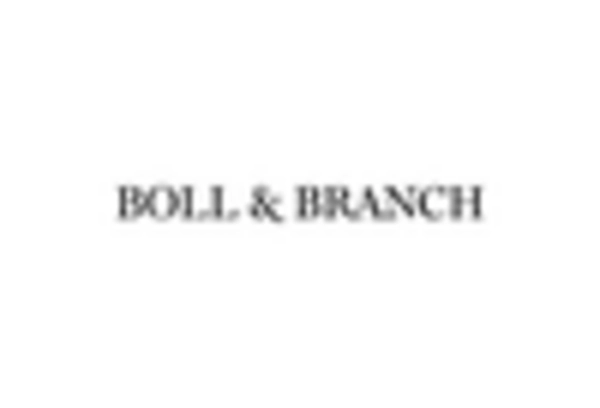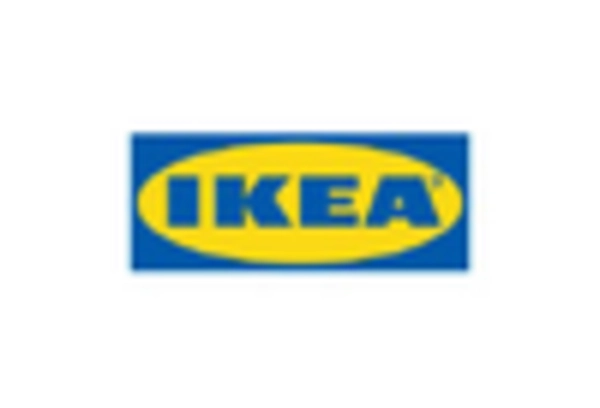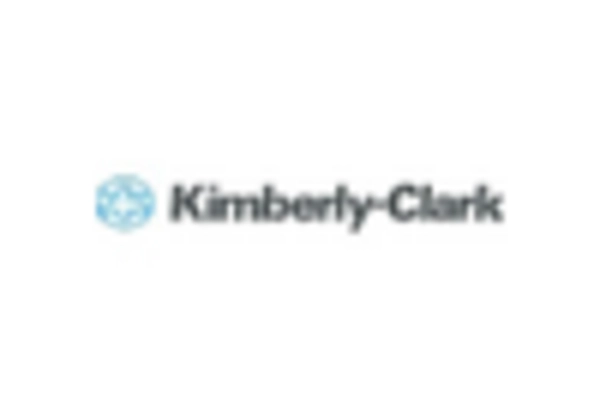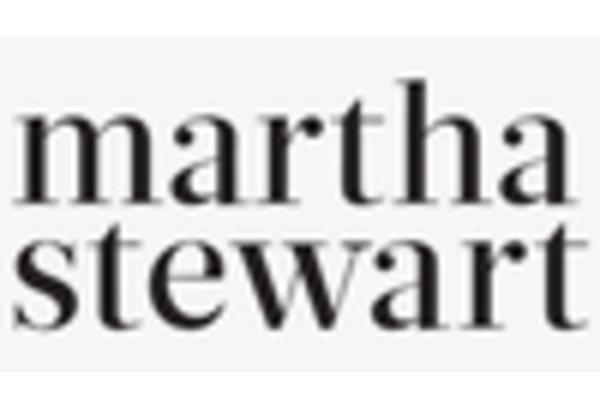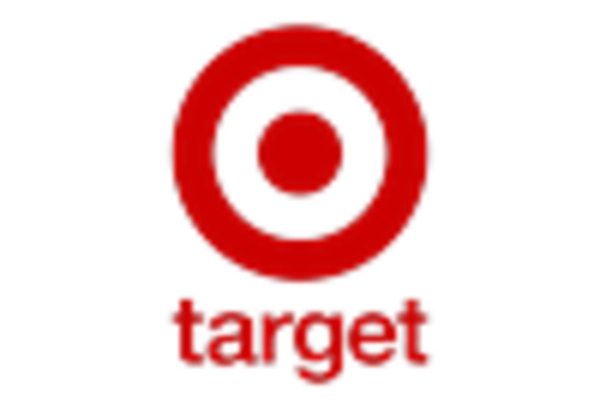E-commerce Expansion
E-commerce expansion is transforming the bath towel Market by providing consumers with greater access to a variety of products. The convenience of online shopping has led to a surge in sales, as consumers can easily compare prices and styles from the comfort of their homes. In 2025, it is anticipated that online sales will constitute a substantial share of the overall market, driven by the increasing penetration of smartphones and internet access. Retailers that optimize their online presence and offer seamless shopping experiences may capture a larger customer base. Additionally, the rise of social media marketing is likely to enhance brand visibility, further propelling e-commerce growth in the bath towel sector.
Health and Wellness Trends
The Bath Towel Market is also influenced by the rising health and wellness trends. As consumers become more health-conscious, there is an increasing focus on hygiene and cleanliness. This has led to a demand for towels that offer antimicrobial properties and quick-drying capabilities. In 2025, the market for health-oriented bath towels is expected to expand, driven by consumer awareness of the importance of maintaining a clean and safe environment. Manufacturers are likely to innovate by incorporating advanced materials that promote hygiene, thereby appealing to health-conscious consumers. This trend may create new opportunities for brands to differentiate themselves in a competitive landscape.
Sustainability Initiatives
The Bath Towel Market is increasingly influenced by sustainability initiatives. Consumers are becoming more environmentally conscious, leading to a demand for eco-friendly products. Manufacturers are responding by utilizing organic cotton, bamboo, and recycled materials in their towel production. This shift not only caters to consumer preferences but also aligns with regulatory pressures aimed at reducing environmental impact. In 2025, it is estimated that the market for sustainable bath towels could account for a significant portion of overall sales, reflecting a broader trend towards responsible consumption. Companies that prioritize sustainability may gain a competitive edge, as consumers are likely to favor brands that demonstrate a commitment to environmental stewardship.
Technological Advancements
Technological advancements play a pivotal role in shaping the Bath Towel Market. Innovations in textile manufacturing, such as improved weaving techniques and moisture-wicking fabrics, enhance the functionality and appeal of bath towels. These advancements not only improve the quality of towels but also contribute to their durability and longevity. In 2025, the integration of smart textiles, which can regulate temperature or provide antimicrobial properties, is expected to gain traction. This could lead to a new segment within the market, attracting tech-savvy consumers who seek multifunctional products. As a result, companies that invest in research and development may find themselves at the forefront of this evolving market.
Changing Consumer Preferences
Changing consumer preferences significantly impact the Bath Towel Market. There is a noticeable shift towards personalized and luxury products, as consumers seek unique experiences in their daily routines. This trend is reflected in the growing demand for high-quality, plush towels that offer comfort and indulgence. Market data indicates that premium bath towels are projected to experience a robust growth rate, outpacing standard offerings. Additionally, the rise of social media influences consumer choices, as aesthetically pleasing towels become a part of home decor. Brands that successfully tap into these evolving preferences may enhance their market position and drive sales.


